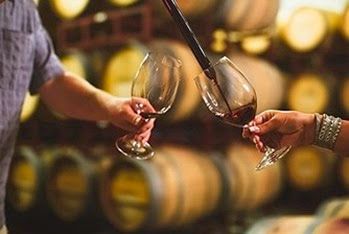Guest Post 
Wine fraud has been a problem for about as long as wine has been produced and enjoyed. Even Pliny the Elder, the Ancient Roman philosopher, complained about it – there was so much fraudulent wine that even the nobles couldn’t be sure what they were drinking. And the problem has only got worse as time has gone by. But what exactly is wine fraud, and can it be combatted?
What Is Wine Fraud?
There are a few different varieties of wine fraud, but they all involve the same outcome: the customer ends up paying well over the odds for a wine of a much poorer quality than they’d expected.
Sometimes, the wine is adulterated – cheap products like fruit juices, chemicals and sweeteners can be added to the wine to help improve the substandard colour or flavour. Some instances of wine fraud are even simpler than that: the label of a cheap wine will be steamed off, and replaced with the label of a much more expensive variety.
There have even been a few cases in which an entire auction consignment of rare fine wines has turned out to be entirely fraudulent, costing people a massive amount of money for a few bottles of a wine that’s barely worth drinking. Wine Spectator magazine estimates that more than 5% of auctioned wine is counterfeit.
Notable Cases of Wine Fraud
Just this year, there have been two massive wine fraud cases. In September, a probe into an elaborate fraud operation uncovered well over 200,000 bottles’ worth of fake Brunello di Montalcino. A wine connoisseur had obtained fake labels of the Tuscan wine and managed to falsify certification in the area’s wine database, and was selling low-quality wine to local producers, passing it off as the coveted Brunello.
Luca Albertario, the chief of Siena police, stated that it was “the biggest fraud ever carried out in the food sector.” 220,000 bottles of poor wine was confiscated before it could go on the market; it wine would have sold for around £4m. The US – the world’s biggest importer of Brunello – stopped all imports of the wine until they were satisfied that good quality controls were in place.
In August, Rudy Kurniawan – one of the world’s top oenologists – was jailed for ten years and ordered to pay almost $30m in restitution. Kurniawan had sold more than $20m of fake wine over a decade or so, most of which was to just seven clients.
His deception was discovered in 2012, when a consignment of his (worth $3m) was rejected by the wine inspector at Hart Davis Hart auction house. Allan Frischman noticed some inaccuracies on the labels, and Kurniawan’s lies came to light. He had been blending cheap recent wines with substandard vintages, and passing them off as more prestigious varieties. For more on this, an authoritative independent wine merchant, Yapp Brothers provided more details of this within their ‘what is a fair sentence for wine fraud?’ post.
What Can Be Done to Combat Wine Fraud?
There are a number of ways to tell whether a wine is the genuine article or not, without having to open the bottle. Most of these methods involve looking for inconsistencies – the wrong kind of glass, a foil capsule instead of a wax one, labels using an incorrect font – but there are other ways being developed.
For wines currently being produced, some producers have started engraving serial numbers on the glass, or tightening the reins on their distribution processes. For older varieties, stable isotope analysis is being employed.



